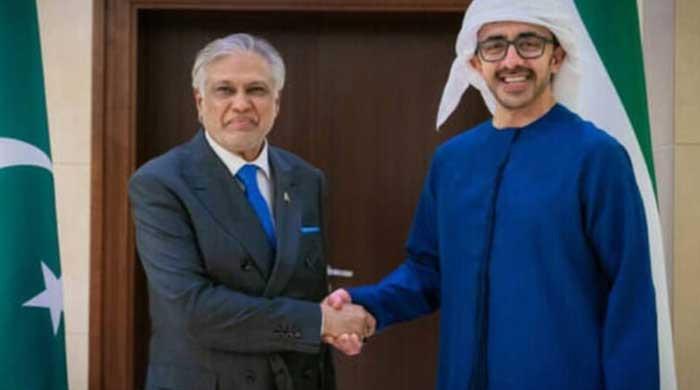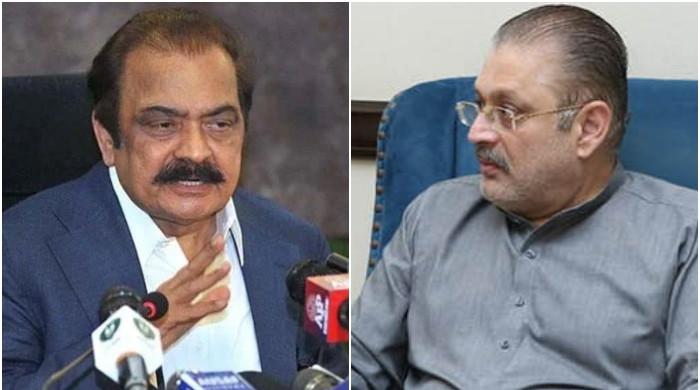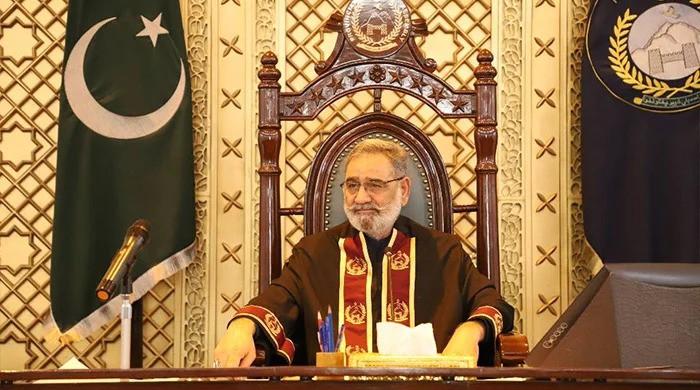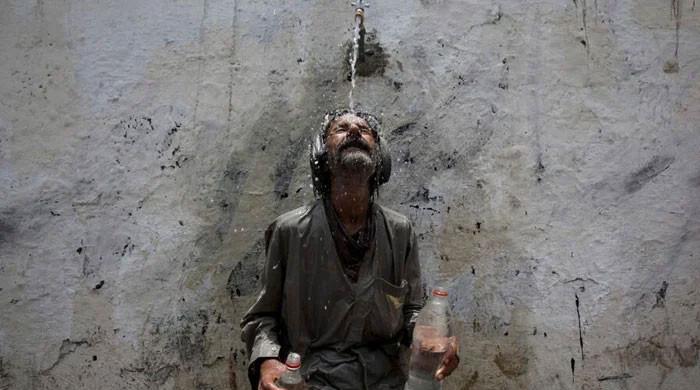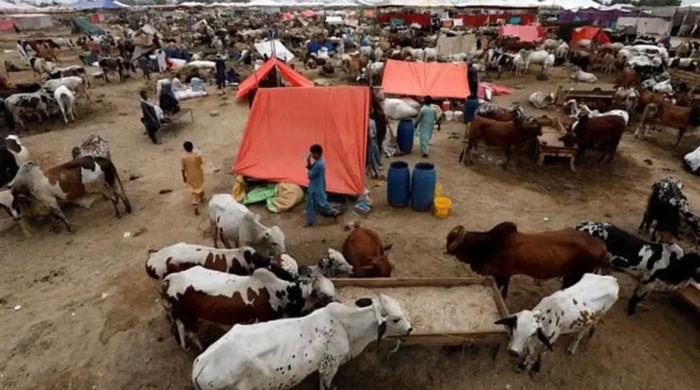Economy back on its feet, ready to take off again: PM Shehbaz
"Pakistan’s journey from darkness to light result of collective efforts," says premier
February 08, 2025

- PM says financial sector on path to sustained recovery and progress.
- Urges businessmen to support govt’s efforts to stabilise economy.
- "Want to leave behind legacy that set country on path of development."
ISLAMABAD: Prime Minister Shehbaz Sharif said on Saturday that the country's economy was finally back on its feet and was ready to take off again following a year of dedicated efforts by the government’s economic team.
"Pakistan’s journey from darkness to light in a year is the result of a collective effort," the premier said while addressing a ceremony commemorating ‘Youm-e-Tameer-o-Taraqqi’ (Day of Development and Progress) as the government completed its first year in power.
He highlighted that the financial sector had overcome significant challenges and was now on a path to sustained recovery and progress.
The premier elaborated that the government successfully engaged with the International Monetary Fund (IMF) to secure a $7 billion loan programme which saved the country from declaring a default.
Although the nation faced challenges due to the IMF’s tough conditions, he emphasised that the economy had now stabilized and was ready to move toward sustained progress and development.
PM Shehbaz said the salaried class had to suffer the most due to the IMF programme as it was now collectively paying Rs300 billion in taxes. He also paid special tribute to the salaried class for contributing such high taxes.
The prime minister stated that the inflation rate had been reduced from 40% to as low as 2.4% in January 2025, leading to a decline in the policy rate.
He urged the business community to support the government’s efforts to stabilize the economy, emphasising that their involvement was crucial.
He assured that the government would fully engage the business community in the policymaking process, as economic growth could not be achieved without consulting the private sector.
The premier emphasised that the government was actively working to curb smuggling across the borders. “By legally exporting sugar to Afghanistan, the government secured $211 million in foreign exchange,” the prime minister said, adding that this valuable revenue would have otherwise ended up in the hands of smugglers.
He also acknowledged the dedicated and sincere efforts of the Pakistan Army and law enforcement agencies in helping to curb smuggling activities across the country.
Regarding the government’s privatisation policy, the prime minister stated, “We are now moving towards a massive privatisation process, as the government has no role in business activities.”
He said terrorism had almost been eliminated from the country in 2018, however, due to the policies of the subsequent government, the menace had resurfaced in the country. "Without uprooting terrorism, the country could not attain the targets of growth and development," he added.
The country, he said needed peace, stability, unity, prosperity and economic growth for which people belonging to all segments of the society would have to work together.
The prime minister said he wanted to leave behind a legacy that set the country on the path of sustainable development.
He also expressed confidence that the government’s recently launched "Uraan Pakistan" programme would become successful and achieve all its set targets.
Speaking on the occasion, Finance Minister Muhammad Aurangzeb stated that the incumbent government’s prudent policies had successfully reduced the inflation rate from a steep 40% to 2.4%. Additionally, the policy rate was lowered to 12%, easing the government’s debt servicing burden.
He emphasised that for the first time in the country’s history, the government was rigorously implementing structural reforms, right sizing and pension reforms.




